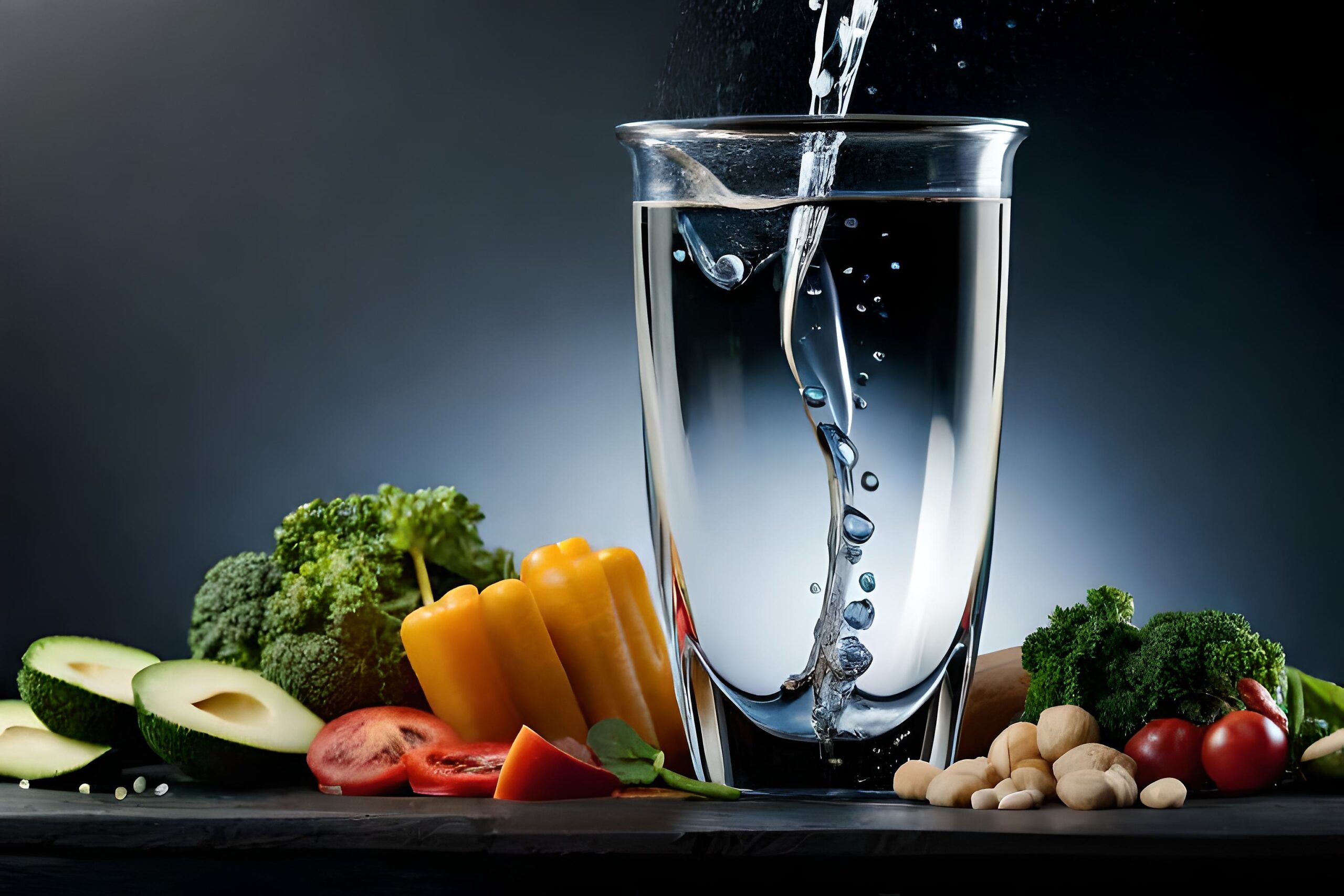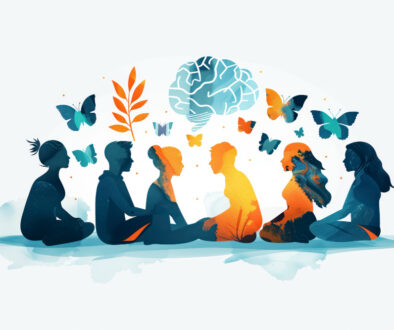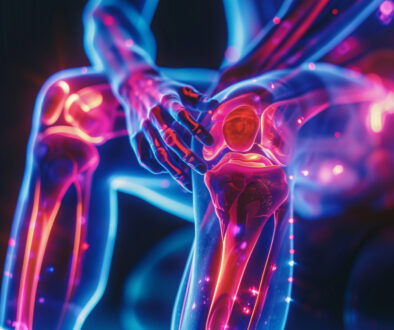Hydration And Nutrition: What’s the Spirit of Water?
In reality, hydration and nutrition are crucial aspects of your health, even though you may think of drinking water and eating food as part of your daily routine. Both terms refer to meeting your body’s essential needs. Hydration provides fluids. At the same time, nutrition offers energy and building blocks for growth and repair.
Every system in your body relies on water and nutrients to function correctly. For instance, water doesn’t just quench your thirst; it regulates your body temperature, lubricates joints, and helps flush out waste. The nutrients you get from food support processes like cell production, immune system strength, and muscle function.
It’s not just about the quantity but the quality of nutrients. An individual’s age, sex, weight, activity level, and general health require different levels of proper hydration and nutrition. For example, athletes often require more protein and calories than someone with a sedentary lifestyle. At the same time, children need different nutrients as they grow.
Equally important is understanding how hydration and nutrition support each other. Certain nutrients, such as soluble vitamins (A, D, E, K), rely on water to be appropriately absorbed by your body. Similarly, staying well-hydrated helps the digestive system process and distribute nutrients.
In the following sections, we’ll explore what happens when your body doesn’t get enough water or essential nutrients and, more importantly, how to prevent dehydration and nutritional deficiencies.
Contents
The Impact of Dehydration and Nutritional Deficiencies
Even minor neglect in hydration and nutrition can affect your well-being. It is crucial to understand what your body stands to lose when it’s not adequately cared for. Dehydration and nutritional deficiencies can manifest subtly at first – fatigue, dizziness, or dry skin. Early warning signs can escalate to more severe issues, such as kidney stones or even cognitive impairments if ignored.
While thirst is an unmistakable signal you need water, there are less apparent signs of dehydration like headaches or muscle cramps. Similarly, you might notice slower wound healing or a compromised immune system if your diet lacks essential vitamins and minerals. Over time, persistent deficiencies can lead to chronic health conditions like osteoporosis or anemia.

Particular individuals may be more susceptible to these health setbacks. The elderly, young children, pregnant women, and those with chronic illnesses should be especially vigilant. It’s not just about the quantity of water and food consumed; the quality matters, with a balanced intake vital in warding off deficiencies.
What can you do to prevent these troubling issues? It starts with awareness. Monitor your body’s signals and respond appropriately with increased fluid intake or a more nutrient-rich diet. Regular check-ups are also valuable, offering a perspective on your health status and uncovering potential problems early.
But prevention is just the beginning. Once you’re mindful of the risks, it’s time to take proactive steps to ensure your body gets what it needs. In the next section, I’ll guide you through actionable advice to enhance your daily hydration and nutrition, helping you maintain peak health and vitality.
Balancing the Power of Water and Nutrition: Practical Pointers
Water is vital. Understand that and prioritize drinking enough daily. The same goes for nutrient-dense food. But you and I know that’s just half the battle. Keeping that balance between hydration and nutrients is what counts. Here’s what’s works.

Start with the basics: WATER. Carry a reusable bottle. Set reminders to take sips throughout the day. It’s a simple tactic that keeps you hydrated without feeling overwhelmed.
Food pairs with hydration. Focus on fruits and veggies with high water content; think cucumbers, oranges, and strawberries. They’re a two-for-one deal providing hydration and essential vitamins.
Meal planning is a game changer. It helps ensure you’re getting a variety of nutrients each week. Plot out meals to cover all your nutritional bases, from protein to healthy fats. In today’s fast-paced world, setting aside time on an appropriate day to prep can make life easier.
I don’t personally use apps for tracking what I eat and drink, but they’re available if that makes your day more manageable. They keep records, identifying trends and gaps in your diet. According to reviews, this feedback is GOLD when you’re trying to maintain a balanced intake.
Mindfulness while eating has become a buzzword. But it’s more than that; it’s a lifestyle. Take time to enjoy my food, which helps with digestion and satiation. Drinking water before meals aids this process by partially filling the stomach, which can help control portion sizes.
KEEP IT SIMPLE and sustainable. Find what works for you and stick with it. Fads come and go, but my health is a long-term commitment. So, I focus on consistently creating habits that I can maintain over time.
With a wealth of information at your fingertips, distinguishing between nutritional myths and hydration facts is crucial. In this era of wellness trends and diet fads, it’s easy to get swept up in promises of quick fixes and miraculous benefits. Here’s how you can navigate these waters with a discerning eye.
First and foremost, challenge the common myths. The idea that everyone should drink eight glasses of water daily is not grounded in scientific evidence; water needs vary by individual. Likewise, the concept that certain ‘superfoods’ can compensate for a generally poor diet is misleading; no single food holds the key to good health.
Rely on evidence-based advice when making dietary choices. Peer-reviewed research and guidelines from reputable health organizations should guide your decisions. Health tips on social media may not always have your best interests or personalized needs in mind.
The science of hydration understands that factors such as age, activity level, climate, and even the foods you eat influence your water needs. Water is essential, as is obtaining fluids from vegetables, fruits, and other beverages.
To evaluate nutrition and hydration information critically, consider looking for red flags. Unsubstantiated claims, one-size-fits-all solutions, and endorsements without clear scientific backing should raise suspicion. Always consider the source and check for credentials when seeking advice.
Empowering Your Health Journey with Knowledge and Support
Staying on top of your hydration and nutrition can sometimes feel daunting. But remember, you’re not alone in this endeavour.
Constructing a solid support system is vital. Engage with friends sharing your health goals, family members encouraging your efforts, or online communities where you can exchange tips and stories. A support structure adds accountability and can be a rich source of motivation and advice.

Consulting healthcare professionals can also provide a significant boost to your journey. Dietitians and nutritionists offer personalized plans tailored to your needs, preferences, and medical history. They can troubleshoot problems, celebrate your successes, and keep you grounded with professional insights.
Don’t underestimate educational resources and local community programs either. These can provide workshops, cooking classes, or group activities that make learning about nutrition and staying hydrated fun and interactive.
Self-education is also a powerful tool. Stay curious, ask questions, and seek reliable information from trusted sources. Knowledge is a catalyst for change, and understanding the WHY behind nutritional advice can be incredibly empowering.
Remember, small, consistent steps lead to change over time. You can transform your health with the right tools and a supportive community. So stay committed, USE WISDOM, and let your journey to better hydration and nutrition be successful and rewarding.
Summary
- Hydration and nutrition are crucial to maintaining good health. Every system in the body relies on water and nutrients to function correctly.
- Even minor neglect in hydration and nutrition can affect well-being, leading to issues such as fatigue, dizziness, and cognitive impairments.
- Dehydration and nutritional deficiencies can escalate to more severe issues if ignored.
- The elderly, young children, pregnant women, and those with chronic illnesses should be especially vigilant.
- Balancing hydration and nutrient intake can be achieved by drinking water regularly, focusing on foods with high water content, planning your meals, and practising mindfulness while eating.
- It’s essential to keep it simple and sustainable and to distinguish between nutritional myths and hydration hype.
Resources
NZ Nutrition Foundation
https://nutritionfoundation.org.nz/nutrition-facts/nutrients/
British Nutrition Foundation
https://www.nutrition.org.uk/healthy-sustainable-diets/hydration/




